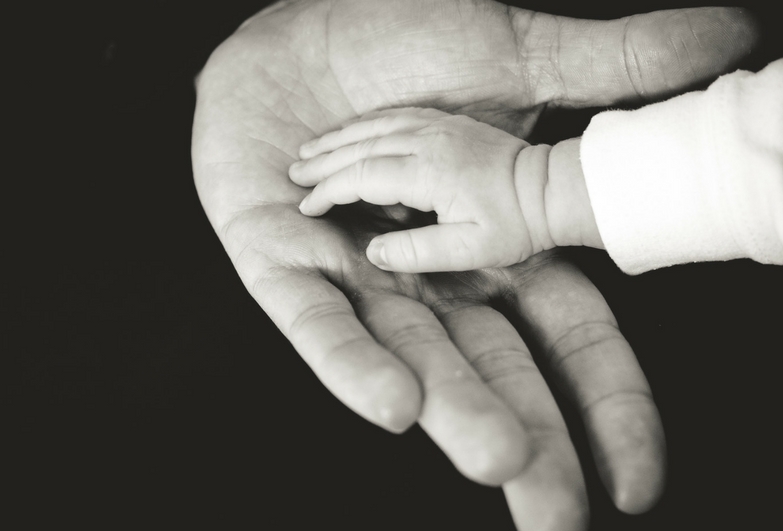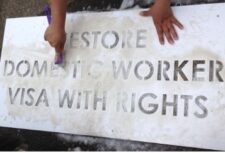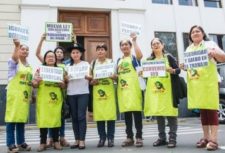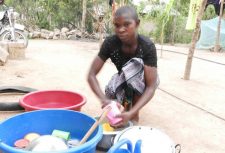Disclaimer: This article is more than 8 years old, and may not include the most up-to-date information or statistics. Please verify information with more recent sources as needed, and if you have any questions contact our Press Office.
Klara Skrivankova, our European Programme and Advocacy Co-ordinator, sums up the latest report of the Anti-Trafficking Monitoring Group.

1 March 2016
Mary* was trafficked to Britain from West Africa when she was 14, forced to work as a domestic worker and locked up in a house by a relative. When two years later she finally escaped and was formally identified as a victim of trafficking, she was placed in in a semi-independent accommodation with little support.
There she befriended a man. In spite of his increasing violence towards her she became pregnant. She was still only a child herself. The baby was put on the child protection register from birth because of the ongoing situation of domestic violence.
Mary received very little support from the authorities and felt she had few options. She thought her social workers had little understanding of her situation and judged her for entering a relationship with a violent man.
It was only after receiving support from one of the charity organisations working with trafficked children Mary felt that she was finally listened to, and she was able to build up some confidence in her life and parenting skills. She finally had someone on her side to help her start making safe choices and start building a life for herself and her child.
Mary’s story is not unique. A new report entitled ‘Time to Deliver’, published today by the Anti-Trafficking Monitoring Group (ATMG), a coalition of twelve UK-based charities hosted by Anti-Slavery International, found that the victims of trafficking who are pregnant or have children have been ‘systematically overlooked’ by the British authorities.
Pregnancy and parenthood can have a huge impact on trafficking victims. For some women their child, particularly one that was born as a result of rape, may be a constant reminder of their past trauma. Traffickers often use threats against a victim’s child to control them. Such threats can sometimes lead to former victims being retrafficked.
Yet the government’s response to trafficking doesn’t recognise the further vulnerabilities that pregnancy or parenthood can entail for trafficking victims. Therefore it doesn’t provide specific support to counter those special vulnerabilities.
The problem may be more widespread than we imagine. Unfortunately we can only rely on estimates because the government doesn’t collect these statistics: The National Referral Mechanism (NRM), a system through which potential victims of trafficking are formally identified and supported, doesn’t include questions on pregnancy or parental status in its referral form. But the research collected by the ATMG indicates that as many as half of trafficking victims supported by the coalition organisations are pregnant or have children.
The failure to collect data exemplifies the lack of systematic approach from the authorities. While frontline service providers often do understand the special needs of this group and make special arrangements for them, their efforts can be undermined by insufficiencies in the broader official support.
Take the accommodation for trafficking victims and their families for example. Rather than being supported in a safe house, around 40% of trafficking victims are currently housed in often low-standard National Asylum Support Service (NASS) accommodation, often outside of cities and far from their established networks. Recent stats indicate that only around half of them received outreach support.
Or consider childcare provision for trafficking victims. Despite examples of good practice, there were also cases where some children were forced to be present during their parent’s asylum and NRM interviews at the Home Office, and exposed to disclosures of abuse.
Long-term childcare provision is also patchy, meaning that the victims who are parents often aren’t able to access vocational courses and social events, making putting their lives back together much more difficult.
Here we are touching on the essence of what should a comprehensive response to the problem of modern slavery look like. Because if trafficked people are not given individual and holistic support from authorities, not only it is much more difficult to overcome their trafficking experience, but also it makes them much less likely to trust the authorities and work with them to bring their traffickers to justice.
This has been a recurrent problem with the government’s response to slavery. It might be serious about being tough on traffickers, but if it doesn’t focus enough on the victims and their individual needs – it will be likely to fail in bringing the criminals to justice too.
Mary was lucky to come across a professional support provided by a charity. But such support should not be a mere matter of luck. The UK is still some way off having a consistently “victim-centred” approach in responding to slavery. Paying proper care and attention to the needs of parents and pregnant victims of trafficking will be an important step in achieving this.
* Not her real name





